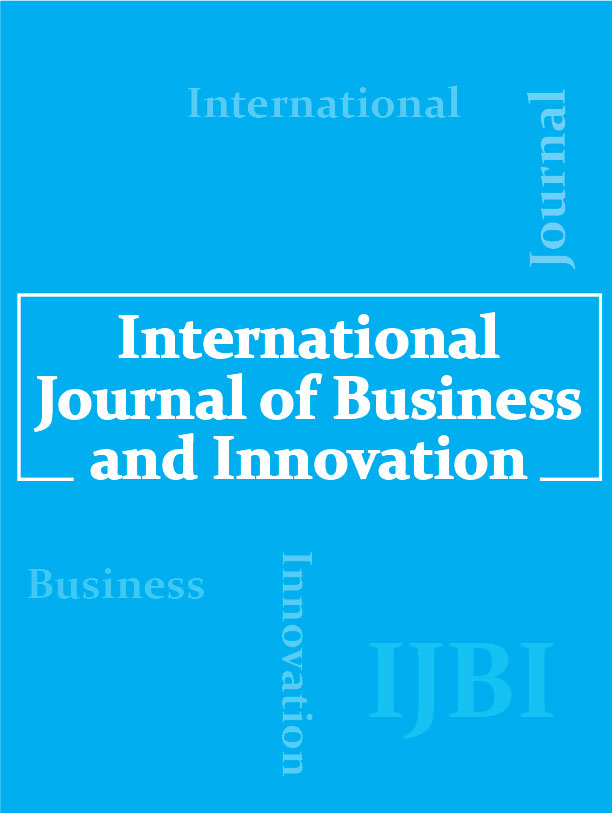Beliefs about the Use of Instagram: An Exploratory Study
Hiram Ting, Winnie Wong Poh Ming, Ernest Cyril de Run, Sally Lau Yin Choo
Given the rapid technological advancement, social media and communication devices continue to grow exponentially. Hence, social networking has become a major communication method in contemporary society. As a mobile application, Instagram has been widely used for personal reasons as well as business activities. Due to the lack of literature in understanding why people use Instagram in emerging markets, the present study serves as groundwork to explore the subject matter in Malaysia. The theory of reasoned action (TRA) was adapted so as to provide theoretical base to explain specific beliefs about Instagram. This provides better understanding of attitude and usage behavior towards Instagram. Qualitative method was adopted by means of personal interview in order to elicit belief factors about Instagram. Thirty-four interviews were conducted on the basis of data replicability, and all transcriptions were subsequently analyzed using content analysis. Results indicate that behavioral beliefs about Instagram are composed of five factors, and they are labeled as personal gratification, features usefulness, socializing role, product information and entertainment. Normative beliefs, in turn, are made up by six factors, and they are labeled as siblings, relatives, close friends/peers, friends in general, Facebook friends, and application reviewers. This exploratory study contributes a fundamental knowledge about Instagram and social networking communication with a theoretical stance. From managerial standpoint, it also elucidates the effect of communication manner and people from the same age-group on adopting the product.
Brand Related User Generated Content in Consumer Socialization Process: A Conceptual Model and Research Propositions
Naghmeh Sabermajidi, Kok Wei Khong, Sathyaprakash Balaji Makam
Considering the increase in popularity and usage of social media, there is no doubt that the potential for e-marketing and other forms of online positioning is growing in equal measure. Consumer socialization through these new types of online communities, especially via social networking websites, has become an important part of contemporary marketing. An online community provides a cost effective mechanism with the ability to target specific types of consumer demographics. However, there is still a gap in the socialization literature regarding the effects of Brand-related User-generated Content (BR-UGC) on users’ intention to purchase branded products/services via their online interactions. Given the increasing exposure to generating and sharing BR-UGD and the prevalence of social networks like Facebook in the lives of today’s users this gap needs to be addressed. This paper marks an exploratory step toward our understanding of the interactive roles BR-UGC content and Facebook play in the formation of socialization agent through the lens of consumer socialization theory and, their effects on users’ attitude towards the brands and purchase intentions. It also addresses the impact of social structural variables and social experience variables as antecedents to generating vs. sharing BR-UGC as consumer socialization agents. The proposed model is valuable for future empirical research whereby user’s interactions via BR-UGC can be enhanced to maximize the influence of social media in purchase intention.
Exploring the Elements That Create Appeal to Touristic Websites and Social Media
Ahmed Moussa Elsamadicy, Eiman Medhat Negm
The objective of this study is to explore factors which influence traveler’s evaluations of touristic website and social media. Facebook, Twitter, YouTube, and other social platforms allows tourists to easily share and depend on word-of-mouth, opinions, recommendations, and suggestions during raveling. Further, social media provides guidance regarding various destinations, accommodations, restaurants, and attractions. A qualitative research was conducted. According to the qualitative analysis, the respondents in this study consider social media appealing because the information provided allows travelers to plan their trips without worry due to the reliance of other travelers’ reviews. The website’s virtual existence, available published content variety, and social networking make the social media to be appealed. This paper provides useful information which is needed for the promotion of tourism services through the usage of social media. It offers practical help to tourism planners and marketers in Egypt to understand the concept of social media desirability.
The Influence of Organizational Culture on Creativity and Innovation: A Review
S. Kiumarsi, Salmi Mohd Isa, Rostam Ranjbar Navi
In a modern society, creativity and innovation can lead to the success of organizations. Today, innovation is one of the main factors influencing business success in an extremely competitive and dynamic environment. Therefore, scholars and practitioners have attempted to contribute to improvements in knowledge of the effective management of innovation. To date, although the literature on innovation is growing rapidly, very little attention has been paid to the organizational and managerial issues pertaining to creativity. Previous studies have confirmed that creativity, innovation, discovery and inventions result in the success and existence of organizations. Thus, the main aim of this paper is to review the existing literature on the relationship of organizational culture with creativity and innovation. Furthermore, it has been proposed that creativity may improve the level of innovation implementation. This proposed framework is expected to further the deep insight into innovation management and scope out for empirical study in different settings.
